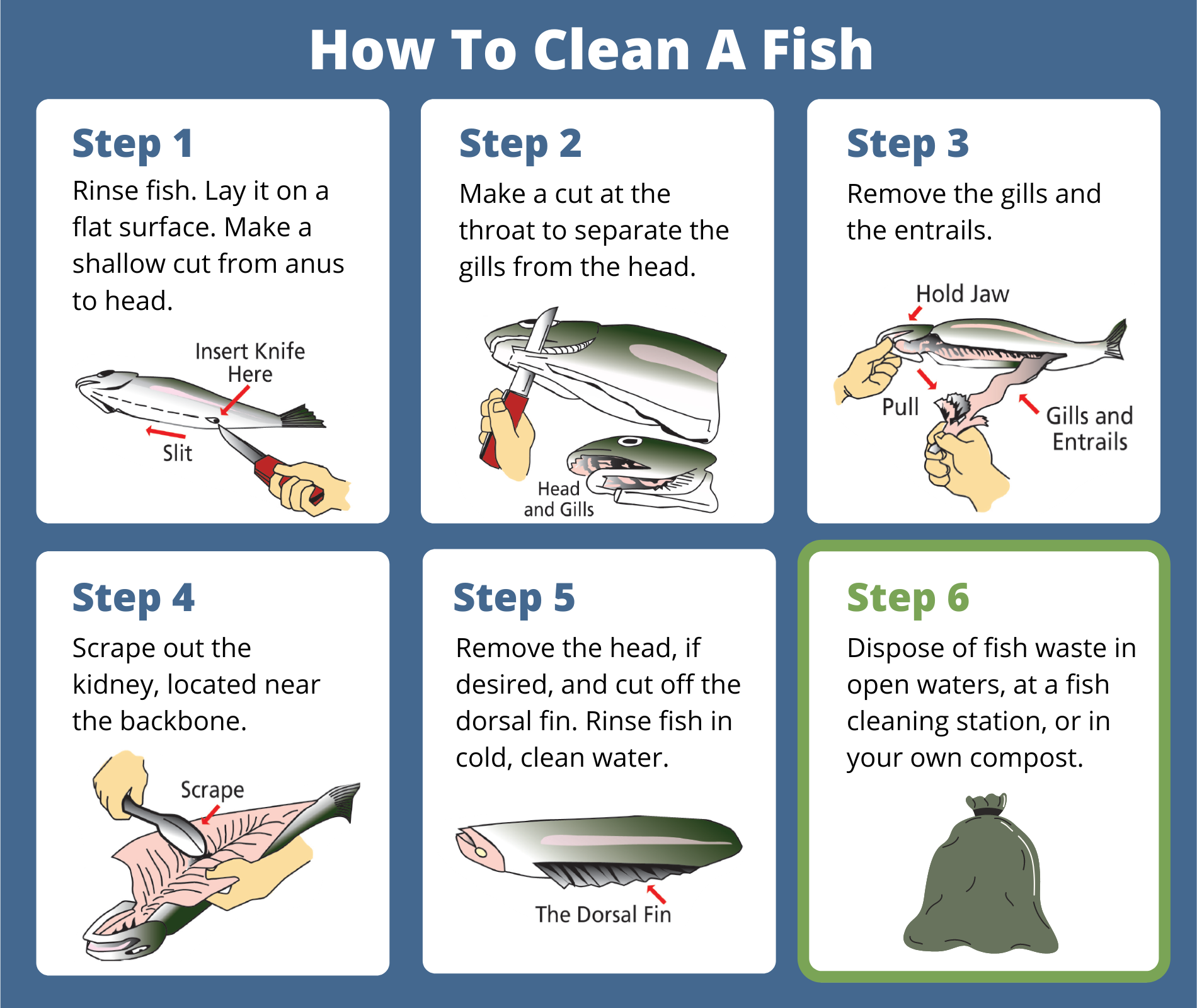When cleaning your catch, be mindful where you spill your guts. It’s easy to toss fish waste into the nearest body of water, and this common practice doesn’t usually cause problems if you’re on the open sea. However, in marinas, this small action can have a large negative impact on water quality and wildlife. That’s why it’s important to remember the final step of fish cleaning.
How fish waste harms marinas
Fish waste includes any flesh, skin, bones, and entrails that are discarded after cleaning a fish. In small quantities and in open water, fish waste is fed upon by scavenging animals and doesn’t cause environmental issues. When disposed of in large quantities and in areas where water circulation is restricted, fish waste becomes a big problem.
In uncirculated waters, fish waste can deplete the water of dissolved oxygen as it decomposes. This lack of oxygen can reduce water quality and increase fish kills. Over time, fish waste also creates strong unpleasant odors in marinas, especially in warmer temperatures. Because marinas are closed-off from open water and a popular hub for fishing boats, they have a high risk of being negatively impacted by excess fish waste.
How you can help
There are several ways you can help protect marinas:
- Become familiar with and follow the rules for managing fish waste at your local marina
- Use fish cleaning stations, when available
- Clean fish offshore and toss fish waste in open, unrestricted water or at sea
- Clean fish at home and compost the waste
- Freeze and then reuse fish parts as bait
- When no other option exists, bag the fish waste and dispose of it in the garbage
- Avoid releasing bait, dead or alive, into the water because this can introduce foreign species
- Encourage other boaters and fishermen to dispose of fish waste properly
Additional Information
Want to learn more about fish cleaning, marina protection, or fish waste disposal? Here are some more resources you may find helpful:



